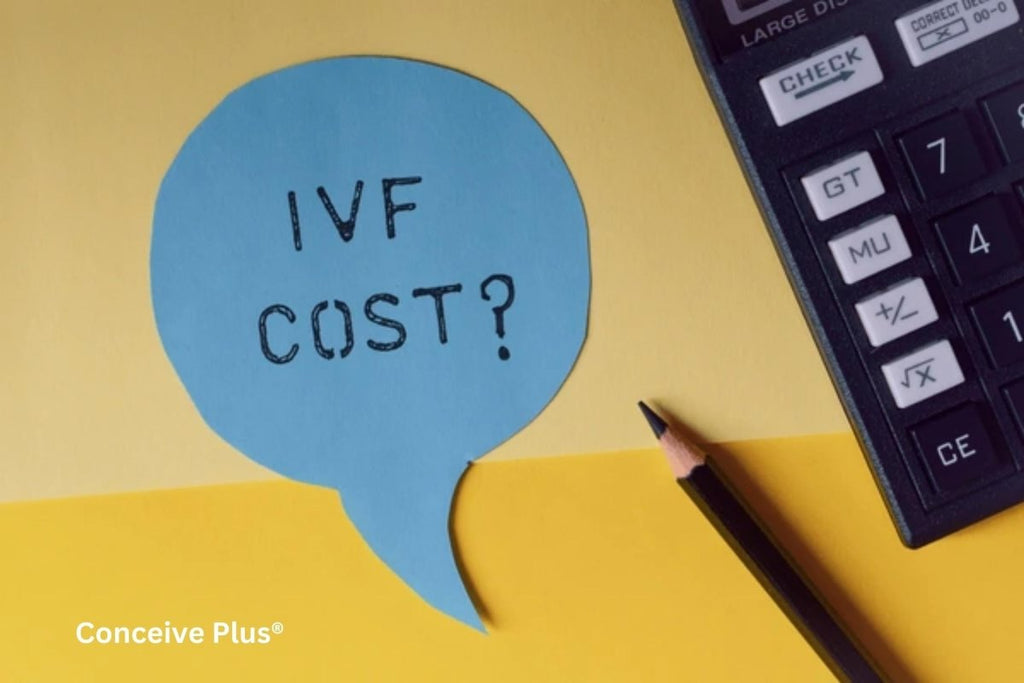Does Ovulation Make You Hungry and Trigger Cravings

If you’ve ever caught yourself reaching for snacks more often mid-cycle and wondered, “Does ovulation make you hungry?”, you’re not imagining it. It’s a real thing. Ovulation isn’t just about releasing an egg. This time of the month brings a cascade of hormonal changes that impact everything from your energy to your appetite. And yes, it’s perfectly normal to feel like you can’t stop eating during ovulation.
Let’s talk about why you feel hungry during ovulation and what’s going on inside your body during this phase. We’ll explore the science, how it connects to fertility, and how to manage cravings while staying balanced.
What’s Actually Happening During Ovulation
Ovulation is when your ovary releases a mature egg. This usually happens around day 14 of a typical 28-day menstrual cycle. But here’s the thing—not everyone has a textbook cycle, so ovulation can occur earlier or later.
Right before ovulation, your estrogen levels surge. This hormone plays a key role in thickening the uterine lining and preparing it for a possible pregnancy. As the egg is released, your body starts producing more progesterone. Progesterone is what kicks in to maintain that lining in case the egg is fertilized [1].
Now, here’s where it gets interesting. These hormones don’t just affect your reproductive system. They also mess with your hunger levels and energy. It’s why so many women say they feel hungry while ovulating or notice an increase in cravings. Hormonal changes tied to female reproductive issues can further amplify these effects, making the connection between diet and reproduction even more complex.
Why Does Ovulation Make You Hungry
The main culprit behind feeling ovulation hungry is progesterone. After ovulation, progesterone levels spike, which naturally increases appetite. It’s like your body is stocking up on extra energy in case there’s a baby to support. Exploring natural ways to induce ovulation can help balance these hormonal shifts and support overall reproductive health. Many women notice a distinct increase appetite during ovulation as their bodies adjust to hormonal shifts, especially the rise in progesterone, which signals the body to prepare for potential pregnancy by boosting energy intake [2].
But there’s more to it. Hormones like estrogen also interact with your brain’s hunger signals. When estrogen levels are high (right before ovulation), your appetite might decrease. But as soon as progesterone takes over, hunger comes roaring back.
Another reason you feel hungrier when ovulating is that your body’s basal metabolic rate (BMR) slightly increases. This means you’re burning more calories even when you’re resting, so your body demands more food to keep up [3].
Does Ovulation Make You Tired and Hungry
Yes, it can. Many women report feeling both tired and ravenous around ovulation. So if you’ve ever asked yourself, “Does ovulation make you tired and hungry?”, the answer is absolutely yes.
Fatigue during ovulation can happen for a few reasons. For one, your body is working overtime to release an egg and prepare for potential fertilization. Hormonal fluctuations also play a role, with progesterone being known for its sedative effects. Combine that with the fact that your body might be burning more energy, and it’s no surprise you feel both exhausted and starving [4].
Why Do You Have Cravings During Ovulation?
Cravings around ovulation aren’t just random. They’re deeply tied to what’s happening in your brain and body. Many women experience ovulation cravings for sweet or carb-heavy foods. This happens because serotonin, a feel-good hormone, dips during this phase.
When serotonin levels drop, your brain craves quick fixes, like sugar or refined carbs, to boost mood. It’s a survival mechanism, but it can leave you feeling like you have no control over your eating habits.
Cravings for salty snacks are also common, especially if your body is retaining water due to hormonal changes. Your body might be looking for extra electrolytes, which is why those salty chips suddenly seem irresistible [5].
What About Increased Hunger Before Ovulation?
It’s not just during ovulation—you might notice an increased hunger before ovulation as well. This is because your body is gearing up for the fertile window. As estrogen peaks and your body prepares to release an egg, you might feel hungrier than usual [6].
This pre-ovulation phase is also when many women feel energized and more social. But with that energy boost can come the need for more fuel, which might explain why you find yourself reaching for snacks even before ovulation officially kicks in.
Appetite Increase During Ovulation and Fertility
The appetite increase ovulation is actually a subtle signal from your body about its fertility. When you’re ovulating, your body is at its most fertile. The increased hunger is a way for your body to gather the nutrients it needs to support conception and early pregnancy.
For women trying to conceive, this is a great time to focus on nutrient-dense foods. Ingredients like folic acid, magnesium, and zinc are essential during this phase as they support egg health and hormonal balance. Eating foods rich in these nutrients can improve your chances of conception while satisfying your hunger [7].
How to Manage Hunger and Cravings During Ovulation
Let’s be honest—fighting cravings is tough. And when you’re feeling hunger when ovulating, it’s easy to grab whatever’s closest, even if it’s not the healthiest choice. But managing hunger and cravings doesn’t mean you have to deprive yourself. It’s about making smart choices.
- Eat Balanced Meals: Focus on meals that include protein, healthy fats, and complex carbs. This combo keeps you full longer and helps stabilize blood sugar levels [8].
- Stay Hydrated: Sometimes, thirst can feel like hunger. Drink plenty of water throughout the day to avoid overeating.
- Choose Nutrient-Dense Snacks: Instead of reaching for chips or candy, try nuts, seeds, or fresh fruit. They’ll satisfy your cravings and give your body the nutrients it needs.
- Plan Ahead: Keep healthy snacks on hand so you’re less tempted by junk food.
Emotional Eating During Ovulation
Let’s talk about the emotional side of cravings. Many women find that their emotions are heightened during ovulation, which can lead to emotional eating. The hormonal changes that make you feel hungry while ovulating can also make you more sensitive, irritable, or stressed [9].
Recognizing these emotional triggers is the first step to managing them. Instead of turning to food for comfort, consider other stress-relief techniques like journaling, yoga, or even a quick walk outside.
Why Tracking Your Cycle Helps
One of the best ways to manage hunger and cravings during ovulation is by tracking your cycle. When you know when you’re ovulating, you can anticipate these changes and plan accordingly [10].
Cycle tracking also helps identify your fertile window, which is the best time to conceive if you’re trying for a baby. Apps, basal body temperature charts, or even simple calendars can help you keep track of your cycle and understand your body’s patterns better.
The Connection Between Hunger and Fertility
Feeling ovulation hungry is more than just a hormonal quirk—it’s your body’s way of signaling its readiness for reproduction. The increased hunger during ovulation is a biological mechanism designed to ensure you’re well-nourished for the demands of pregnancy [11].
This is why it’s so important to focus on fertility-friendly foods during this phase. Leafy greens, nuts, seeds, and whole grains provide the nutrients your body needs to support hormonal balance and egg quality.
Does Ovulation Make You Gain Weight?
Some women notice a slight weight gain during ovulation, but it’s usually due to water retention rather than actual fat gain. Hormonal changes, especially the surge in estrogen and progesterone, can cause your body to hold onto extra fluid [12].
This temporary bloating can make you feel heavier, but it typically resolves after ovulation. Staying hydrated and eating foods high in potassium, like bananas and avocados, can help reduce bloating.
Practical Tips for Managing Ovulation Symptoms
- Here’s how to navigate the hunger, cravings, and other symptoms that come with ovulation:
- Focus on protein-rich foods like eggs, lean meats, and beans to keep hunger at bay.
- Choose healthy fats from sources like avocados, nuts, and olive oil to balance hormones.
- Include complex carbs like quinoa, brown rice, and oats for sustained energy.
- Incorporate stress-relief practices like deep breathing or meditation to manage emotional eating.
The Bottom Line
So, does ovulation make you hungry? Absolutely. But it’s not just about food—it’s about your body’s natural rhythm and its incredible ability to prepare for the possibility of creating life.
By understanding why you feel hungry during ovulation and how to manage those cravings, you can embrace this phase of your cycle without feeling out of control. Whether you’re trying to conceive or simply want to better understand your body, paying attention to these signals can make all the difference.
Understanding your body and responding with mindful choices can help you navigate this part of your cycle with ease.
FAQs
Why am I so hungry during ovulation?
Hormonal changes, especially the rise in progesterone, increase your appetite during ovulation. Your body is preparing for potential pregnancy, which requires extra energy.
How can I manage cravings during ovulation?
Focus on eating balanced meals with protein, healthy fats, and complex carbs. Snack on nutrient-rich options like nuts, fruits, and yogurt to satisfy cravings.
Does ovulation make you tired and hungry?
Yes, fatigue and hunger are common during ovulation due to hormonal shifts and increased energy expenditure.
Why do I have cravings for sweets during ovulation?
A drop in serotonin during ovulation can lead to cravings for sugary foods, which temporarily boost mood.
Is it normal to feel bloated during ovulation?
Yes, bloating is common due to hormonal changes and water retention during ovulation.
Citations
- Bulletti C, Bulletti FM, Sciorio R, Guido M. Progesterone: The Key Factor of the Beginning of Life. Int J Mol Sci. Available at: https://pmc.ncbi.nlm.nih.gov/articles/PMC9692968/
- Rogan MM, Black KE. Dietary energy intake across the menstrual cycle: a narrative review. Nutr Rev. Available at: https://pmc.ncbi.nlm.nih.gov/articles/PMC10251302/
- Solomon SJ, Kurzer MS, Calloway DH. Menstrual cycle and basal metabolic rate in women. Am J Clin Nutr. Available at: https://pubmed.ncbi.nlm.nih.gov/7124662/
- Tiranini L, Nappi RE. Recent advances in understanding/management of premenstrual dysphoric disorder/premenstrual syndrome. Fac Rev. Available at: https://pmc.ncbi.nlm.nih.gov/articles/PMC9066446/
- Rodriguez-Giustiniani P, Rodriguez-Sanchez N, Galloway SDR. Fluid and electrolyte balance considerations for female athletes. Eur J Sport Sci. Available at: https://pubmed.ncbi.nlm.nih.gov/34121620/
- Campbell M, Jialal I. Physiology, Endocrine Hormones. [Updated 2022 Sep 26]. In: StatPearls [Internet]. Treasure Island (FL): StatPearls Publishing. Available at: https://www.ncbi.nlm.nih.gov/books/NBK538498/
- Jurczewska J, Szostak-Węgierek D. The Influence of Diet on Ovulation Disorders in Women-A Narrative Review. Nutrients. Available at: https://pmc.ncbi.nlm.nih.gov/articles/PMC9029579/
- Cohen IT, Sherwin BB, Fleming AS. Food cravings, mood, and the menstrual cycle. Horm Behav. Available at: https://pubmed.ncbi.nlm.nih.gov/3428887/
- Fowler N, Keel PK, Burt SA, Neale M, Boker S, Sisk CL, Klump KL. Associations between ovarian hormones and emotional eating across the menstrual cycle: Do ovulatory shifts in hormones matter? Int J Eat Disord. Available at: https://pmc.ncbi.nlm.nih.gov/articles/PMC6394872/
- Schantz JS, Fernandez CSP, Anne Marie ZJ. Menstrual Cycle Tracking Applications and the Potential for Epidemiological Research: A Comprehensive Review of the Literature. Curr Epidemiol Rep. Available at: https://pmc.ncbi.nlm.nih.gov/articles/PMC8162175/
- Owen M. Physiological signs of ovulation and fertility readily observable by women. Linacre Q. Available at: https://pubmed.ncbi.nlm.nih.gov/24845657/
- Bendarska-Czerwińska A, Zmarzły N, Morawiec E, Panfil A, Bryś K, Czarniecka J, Ostenda A, Dziobek K, Sagan D, Boroń D, Michalski P, Pallazo-Michalska V, Grabarek BO. Endocrine disorders and fertility and pregnancy: An update. Front Endocrinol (Lausanne). Available at: https://pmc.ncbi.nlm.nih.gov/articles/PMC9887196/





















